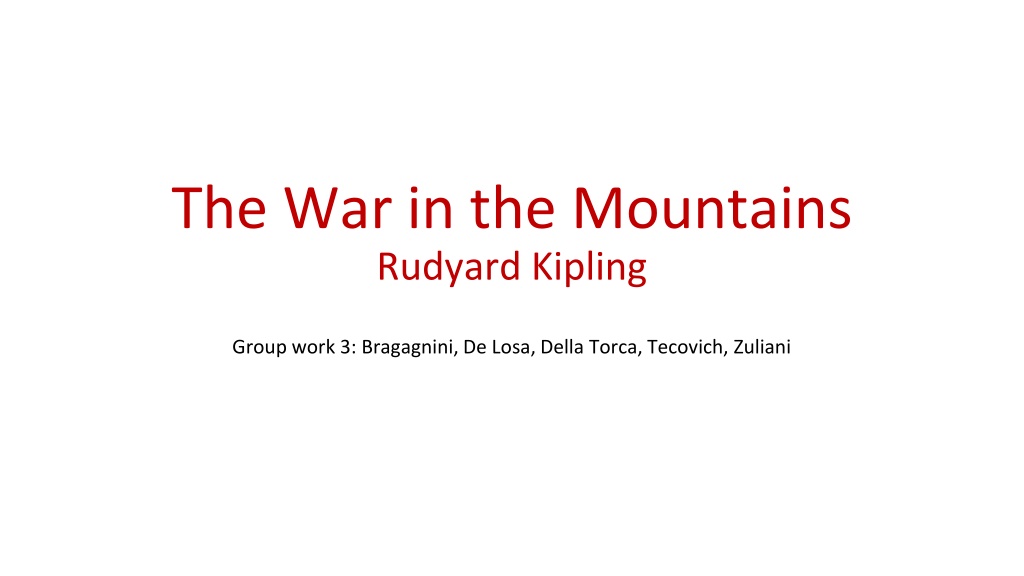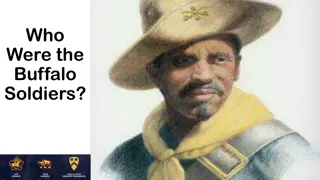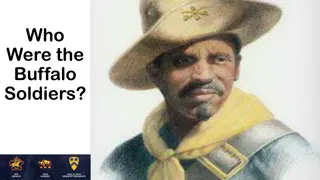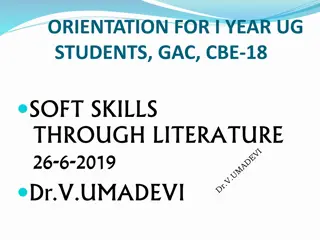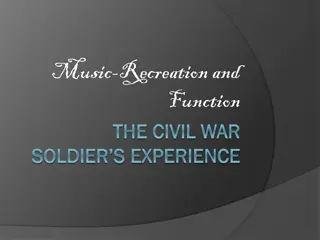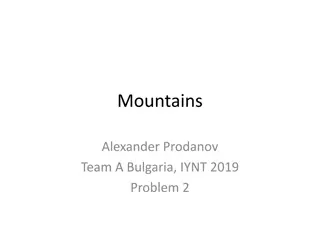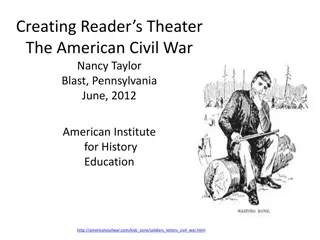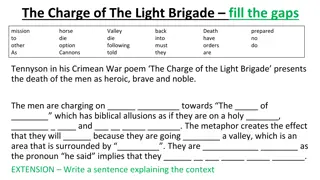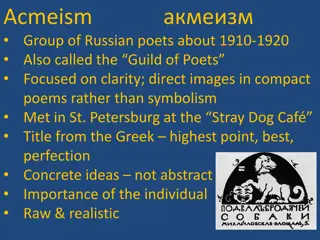Brave Italian Soldiers in Rudyard Kipling's "The War in the Mountains
The novel "The War in the Mountains" by Rudyard Kipling delves into the experiences of Italian soldiers on the Italian front during WWI. Through vivid narration and rhetorical techniques, Kipling highlights the resilience, adaptability, and cooperative spirit of the Italian soldiers as they face challenging conditions. The narrative uncovers the Italian soldiers' values, skills, and attitude towards war, providing a unique perspective on WWI from a foreigner's viewpoint.
Download Presentation

Please find below an Image/Link to download the presentation.
The content on the website is provided AS IS for your information and personal use only. It may not be sold, licensed, or shared on other websites without obtaining consent from the author. Download presentation by click this link. If you encounter any issues during the download, it is possible that the publisher has removed the file from their server.
E N D
Presentation Transcript
The War in the Mountains Rudyard Kipling Group work 3: Bragagnini, De Losa, Della Torca, Tecovich, Zuliani
Introduction Task: Finding out the idea of the Italian soldiers fighting at the Italian front in The War in the Mountains to discover: R.Kipling s idea of Italain soldiers the idea of the soldier Objectives: - - - to analyse WWI from a different point of view (a foreigner s) to learn how to analyse a war report to generate a multimedia presentation Text type: war report
Chapter I: The Roads of an Army Narrator and Narrative techniques: - First person narrator - Showing and telling Language: - Informal register - Present tense - Simple and words and war register - Rhetorical figures metaphors (giants at a hunting) anaphoras (head, head) alliterations (made maps, showed streaks of snow, hard people . habituated to handing hard stuffs) R. Kipling s opinion: - Italian soldiers skills ( to fight and work in spite of mountainous and bad conditions) - Italian people s adaptability and spirit of cooperation
Chapter II: Podgora Narrator and Narrative techniques: - First person narrator - Showing and telling Language: - Semantical choices references to natural elements and its colours - Rhetorical figures metaphors (in a month the smooth Italian roads would overrun them as vine tendrils overrun rubbish-heaps) metonymy (but none the less the machines beat over them from both sides) personification (No one, except a few pieces who were finishing some private work, was saying anything) R.Kipling s opinion: - Italian soldiers are considered as stubborn and hard as French soldiers - From the officer-informant s answers like height is everything in the war in the mountains come to light
Chapter III: A Pass, a King, and a Mountain Narrator and Narrative techniques: - First person narrator - Showing and telling Language: - Informal register - Simple present and simple past - Rhetorical figures similes (They arrive at their proper place by the same means that Rome was built) (new roads [...] as thin and threadlike as the exposed roots of a botanical diagram to illustrate capillary attraction) R. Kipling s opinion: - Italian soldiers values in their speech about the King of Italy - Human activity refers to a Puritan and Protestant ethic
Chapter IV: Only a few steps higher up Narrator and Narrative techniques: - First person narrator - Showing and telling Language: - Informal register - Simple present and simple past - Rhetorical figures personification of nature described like a monster alliteration of sounds w and s (wilderness of wrathful crags and fissures had revealed itself) R.Kipling s opinion: - He uses expressions such as joyous children and the adjective young more than once in order to highlight the members of the Alpine regiments ability even if they may not have many years of experience - They are brave, strong, genuine and happy young people who chose to fight for their Nation
Chapter V: The Trentino front Narrator and Narrative tecniques: - First person narrator - Showing and telling Language: - Informal register - Past simple - Specific words reportage Rhetorical figures similes (the single sentry lying-out like a panther pressed against a hump of rock) metaphors (General Cadorna s headquarters, which might be a monastery or a laboratory) - R.Kipling s opinion: Italian soldiers sense of belonging Italian soldiers organization Austrian Empire as the Devil War as a way to reach National Unity - - - -
Conclusion R. Kipling s overall idea of Italian soldiers comes to light in the war reports and underlines their positive attitudes. Their courage, strength and sacrifice always come to the forefront. Indeed they are re-presented as heroes who left their homes and families and completely devoted to their country by joining the Army. Waging war campaigns does not simply mean fighting, but engaging into activities ranging from road to outposts construction, through some maintenance work necessary to support soldiers at the front. R.Kipling does not express a clear judgment about war. He underlines the worthless massacre of the WWI despite exalting the innovations brought about in Italy by war (the construction of new roads, )
